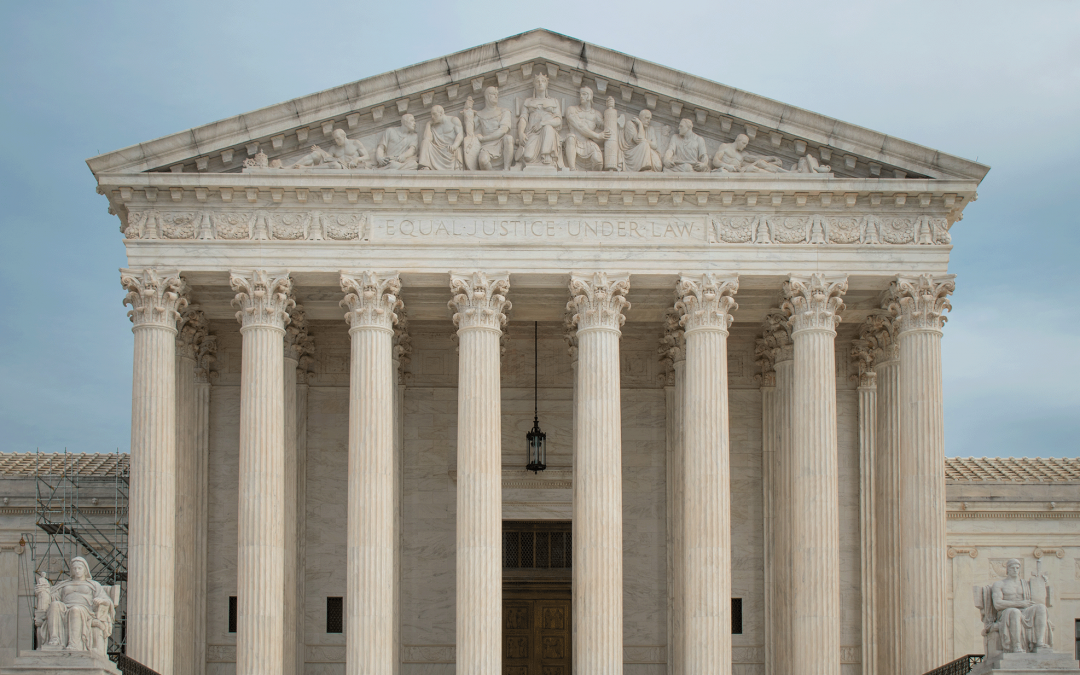WASHINGTON –– The U.S. Supreme Court stopped short of blaming Twitter for the use of its platform for terrorist activity on Wednesday, in the second of two cases against social media companies the court heard this week.
The latest case, Twitter v. Taamneh, stems from an ISIS attack in 2017 that killed 39 people, including Jordanian citizen Nawras Alassaf in an Istanbul nightclub. The U.S. Court of Appeals for the Ninth Circuit had previously agreed with Alassaf’s family who said that Twitter and other technology companies were not aggressive enough in preventing ISIS from using their platforms.
The Supreme Court is considering whether Twitter and other technology companies can be held liable for aiding and abetting acts of terrorism under the 1990 Antiterrorism Act.
During questioning, the justices appeared reluctant to declare that Twitter’s actions constituted knowing and substantial assistance to the specific attack. Justices prodded the defendants and plaintiffs about which circumstances would allow for social media platforms to be held culpable for their users’ actions.
While the plaintiffs did not allege that Twitter was used by ISIS to coordinate the Reina nightclub attack that killed Alassaf and others, their argument rested more broadly on Twitter’s failure to act aggressively to remove ISIS content despite being aware of the organization’s use of their platform. The plaintiffs –– which include the Taamneh family, relatives of Alassaf –– also said Twitter’s algorithm seemed to recommend ISIS content to users.
Seth Waxman, an attorney representing Twitter, argued that Twitter lacked specific knowledge about ISIS’ use of its platforms for terrorism and that the site did not provide substantial assistance to the mass attack in Istanbul. Waxman’s argument relied largely on the characterization of social media as “widely available services offered to the world at arm’s length,” a distinction that he said shielded Twitter from culpability.
The conservative justices expressed more sympathy for Twitter’s argument, questioning whether Twitter’s general knowledge that terrorists were using its platform rose to the level of aiding and abetting crimes. Justice Neil Gorsuch argued that the statute would not apply to Twitter in this case because the specific terrorists involved in the Reina attack were not alleged to have used the platform to coordinate the assault.
“(Twitter) was doing its business, but there are very few points in this complaint that alleged they aided the persons who actually engaged in the terrorist act,” Justice Neil Gorsuch said.
Justice Amy Coney Barrett, however, was more skeptical of the idea that Twitter should be completely off the hook because of the lack of a specific connection to the attack. She argued that “aiding ISIS is aiding the commission of particular acts in the future.”
The case comes one day after the court heard arguments in Gonzalez v. Google, another case brought by the family of a victim of terrorism against Google for promoting ISIS content through YouTube algorithms.
While the Biden administration supported reversing the appellate court’s decision in Taamneh, it sought to straddle the line between both sides of the case. Edwin S. Kneedler, the deputy solicitor general, argued that Congress was careful not to write the Justice Against Sponsors of Terrorism Act – a 2016 bill amending the original law – too broadly as to inhibit normal business.
The court received amicus briefs in support of Alassaf’s family from over 500 victims of terrorism, retired U.S. generals who served in Afghanistan and Iraq, former national security officials from administrations of both parties, and Sen. Chuck Grassley (R-Iowa), the original sponsor of the 1990 antiterrorism law.
These parties argued that the government has long acknowledged the need for a systemic approach to counterterrorism and that this should include weakening terrorist organizations through action from technology companies.
Justice Sonia Sotomayor proposed that Twitter could be considered “knowing” in relation to ISIS’ use of its platform for terrorist activity due to “willful blindness.”
“I’m a little afraid of going on the knowing standard,” Sotomayor said. “Because willful blindness is something we have said can constitute knowledge, and their allegation is that there were similar names to the ones you took off the platform, and that you did no work to find those similarly named entities and determine (if) they were ISIS or not.”
Both cases heard this week by the court threaten to roll back long standing protections that have shielded technology companies from a wide range of lawsuits for decades.


